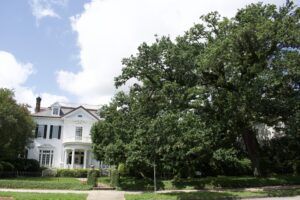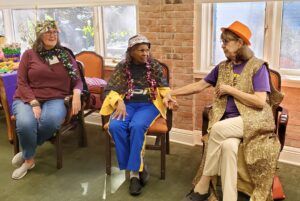The Tree of Forgetfulness
What do people do with memories of an event too heinous to forget but too dangerous to recollect openly? That dilemma underlies Pam Durban’s new novel, The Tree of Forgetfulness, the latest in the Yellow Shoe Fiction series from LSU Press.
It centers on the 1926 lynching of three blacks—Dempsey, Albert and Bessie Long—in Aiken, S.C. This brutal crime, to no one’s surprise, goes unpunished. Such is the strength of loyalties and fear uniting almost everyone with knowledge of it. Decades later, the narrator observes, “what is left of the Long story are fragments, glimpses, and silence.”
“Inspired by actual events,” the narrative intermittently releases details pertaining to the murders through eight characters: a white couple and their son, the couple’s black housekeeper and her young adult son, the town’s new and mistrusted sheriff, a New York journalist who has come south to investigate, and—ingeniously—a future grandchild of the white couple. Their private stories are braided in alternating chapters, creating a many-sided perspective of the context of the crime and a web of relationships forever altered by it.
Chapters at the start and end of the novel are set many years after the triple lynching. Several focus on white insurance salesman Howard Aimar in 1943. As he lies dying and delirious, he recalls the slayings and in doing so “conjures” a future grandchild, “the one he’d feared, the one who might feel the pull of that history and believe she has the right to collect” its fragments. This “curious grandchild” interrogates Howard, prompting him to reveal at least inwardly what he has not divulged publicly.
If you’re seeking a straightforward whodunnit to sink into, this may not be the book for you. Who did what to the Longs remains largely obscure. But history is Dunbar’s ally, not her quarry. Her novel explores the collision of private memory and public memory, and the persistence of the former even when people collectively suppress the latter. As the narrator comments, “When the future comes to demand an accounting from the past, it will not be denied.”











